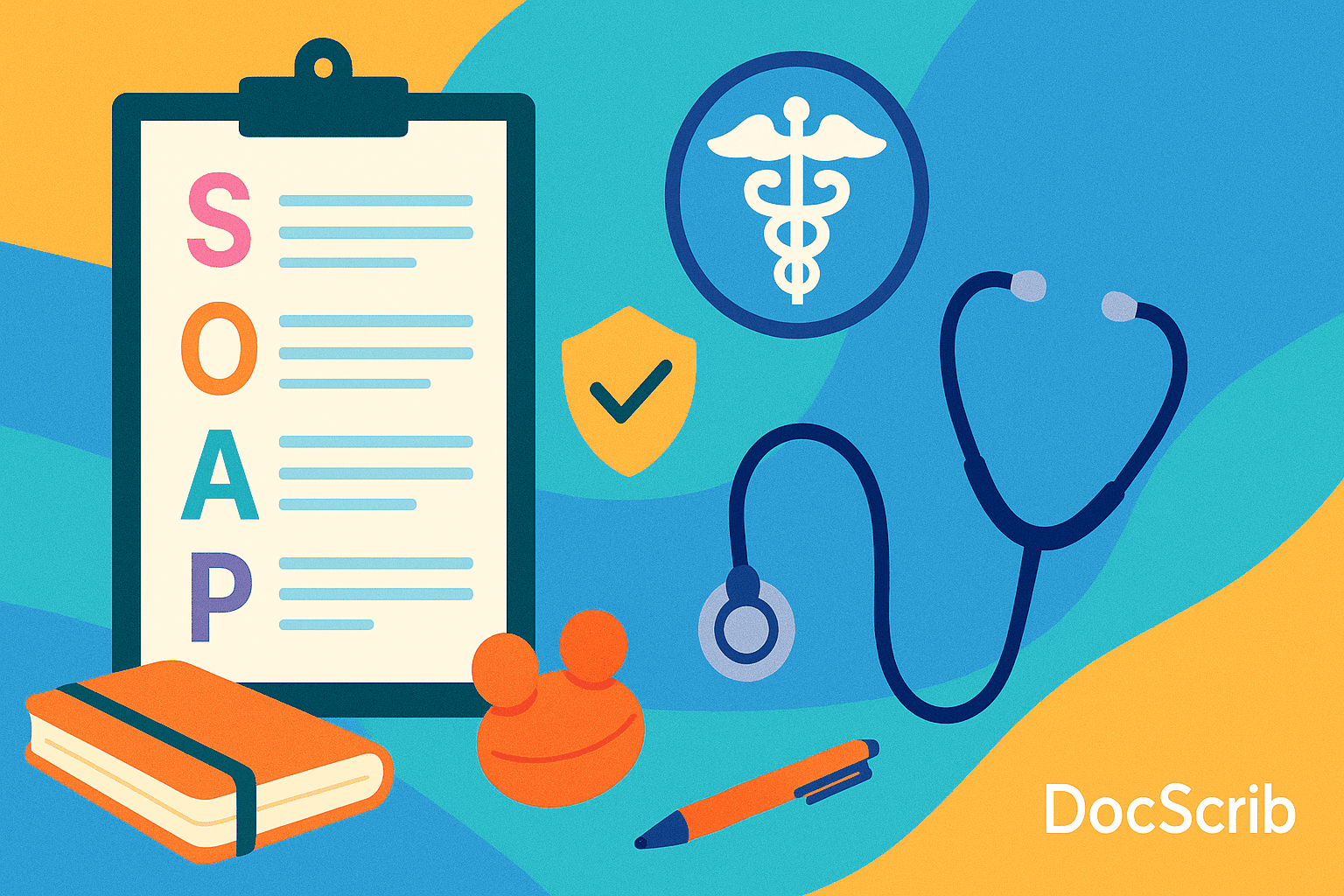Updated on: July 24, 2025
Why SOAP Notes Matter in Occupational Therapy
SOAP (Subjective, Objective, Assessment, Plan) notes are the backbone of OT documentation. They provide clear, organized records of each session—ensuring seamless communication with other providers, demonstrating clinical reasoning, and securing reimbursement from insurers. Accurate SOAP notes protect both clients and clinicians: As the saying goes, “If you didn’t document it, it didn’t happen.”
In OT, SOAP notes serve multiple critical functions:
- Interdisciplinary collaboration
- Legal documentation and audits
- Patient-centered care
The SOAP Framework for OT Documentation
The SOAP structure offers a logical progression:
- Subjective (S): Client-reported symptoms, feelings, or concerns
- Objective (O): Measurable observations, interventions, and results
- Assessment (A): Clinical interpretation, strength identification, and barriers to progress
- Plan (P): Upcoming interventions, frequency, home exercises, or referrals
Subjective (S): Capturing the Client’s Perspective
This section focuses on the client’s own words or reported experiences.
Examples:
- “I feel shaky after standing in the kitchen.”
- “My caregiver said I fell twice while dressing today.”
Best practices:
- Use quotes or paraphrased statements
- Include caregiver or teacher reports for pediatric or cognitively impaired clients
- Note emotional or motivational statuses
Avoid mixing subjective with objective observations.
Objective (O): What You See and Measure
This section includes:
- Quantitative measurements (e.g., grip strength, range of motion)
- Details on assistance level: MaxA, ModA, MinA, SBA, or Independent (I)
- Task descriptions and environmental factors
Tip: Use consistent jargon and abbreviations that others can understand.
Assessment (A): Your Clinical Interpretation
The Assessment section includes:
- Linking Subjective and Objective data
- Interpretation of function, safety, and independence
- Justification for continued OT services
Avoid vague statements—be specific and contextual.
Plan (P): Roadmap for Next Steps
Includes:
- Interventions and goals
- Updates to frequency or duration
- Caregiver education and referrals
Be clear and measurable in your statements.
Common Pitfalls: Dos and Don’ts
DO:
- Use quantifiable information
- Justify care with clinical reasoning
- Write unique session-specific notes
DON’T:
- Copy-paste generic content
- Misplace observations in the wrong section
- Omit important updates or referrals
Templates, EMR Use, and Efficiency Strategies
Use EMRs to:
- Auto-generate SOAP structures
- Clone prior notes and customize
- Include dropdowns or AI-assisted tools
Always review and personalize notes before submission.
Real-World Example: Pediatric OT SOAP Note
S: “I fell three times this morning.”
O: Client required ModA for 60% of dressing tasks.
A: Deficits in motor planning and balance increasing fall risk.
P: Continue OT twice weekly with adaptive tool trials and caregiver education.
Chart Suggestions
- Assistance level infographic
- SOAP timeline bar chart
- Pre/post session effectiveness metrics
SOAP Notes in the Age of AI
AI tools can:
- Auto-generate drafts
- Reduce admin time
- Improve consistency
But human review remains essential.
Incorporating OT Models
Using models like CMOP-E or the Kawa Model enhances:
- Functional context
- Client-centered focus
Final SOAP Note Checklist
- ✔️ Client voice in Subjective
- ✔️ Objective measurements
- ✔️ Clear clinical reasoning in Assessment
- ✔️ Specific actions and goals in Plan
- ✔️ HIPAA compliance
Conclusion
High-quality SOAP notes strengthen client outcomes, professional accountability, and interdisciplinary communication. They are vital tools for therapists committed to excellence in care.
Experience seamless, AI-powered documentation with DocScrib.
Streamline your clinical workflow and reduce admin burden.
Click here to book your free demo
